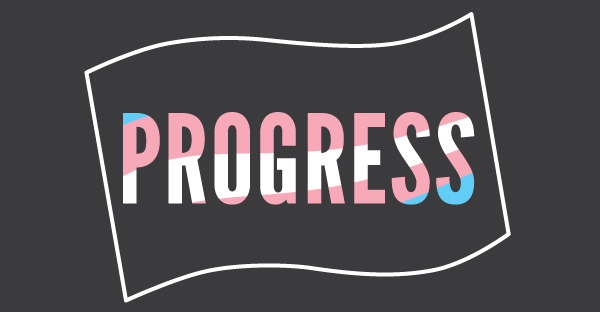Last week, Public Services and Procurement Canada released a guide called Support for trans employees. The guide is aimed at transgender, two-spirit and gender-diverse employees as well as colleagues and managers who wish to actively work towards a supportive workplace.
While each department is responsible for developing their own policies, it’s widely understood that this guide will be the standard-bearer for other departments.
"It's a new chapter for human rights," said Assia Turenne, who was part of the working group that developed the guide. Turenne is a member of CAPE Local 521 and acted as the CAPE representative on this working group.
"It's a guide that goes beyond promoting acceptance; it aims to instill understanding and inclusiveness."
The guide provides important advice for employers and colleagues to adequately support trans employees in their transition and beyond.
Peppered throughout the guide are poignant personal stories from Eve, a current federal public employee, and Ben, a retired federal public service employee. These personal accounts of their lived experiences offer a glimpse into the difficult process of transitioning.
When I met with my manager to tell her what I was doing and the reason why I was doing it, she simply understood and didn't judge me. She did everything she could in order to support me and was respectful in every possible way. Without her initial reaction and her continued support, I would not be writing this and most probably would not be working for the Government of Canada. She changed my perspective on a lot of things. She made a difference in my life and because of that I hope I can help others the way she helped me.
- Excerpt from the story of Eve
Trans members will also find helpful tools in the guide. In addition to advice, both from a trans perspective and from a human resources perspective, there are also sample letters, links to resources and templates that can help trans members through the process of transitioning in the workplace.
The guide also provides important advice for labour unions and union representatives. The union, for one, has a “duty to hold management accountable for a harassment-free workplace and to social justice.” Unions are also duty-bound to “defend the rights of trans members, before, during and after they transition.”
As union representatives, it’s incumbent upon us to familiarize ourselves with the experiences of trans members and the issues they face. As the guide points out, the first person a trans employee might discuss their transition could be a union representative.
We have to be ready and knowledgeable, but above all compassionate, supportive and understanding, for when a trans member comes to us for help. It’s important that all employees know they are supported and that discrimination and harassment will not be tolerated.
To read the complete guide for yourself, please click here.
CAPE is also holding a panel entitled: Empowering the Trans community in the workplace and beyond. This panel will be held on September 21 as part of our Reignite Learning series. Stay tuned for more information!



